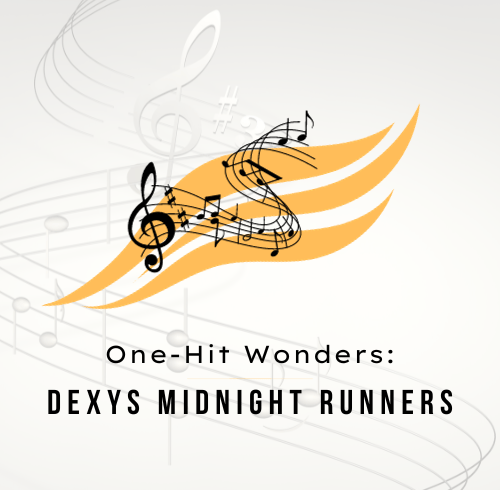Introduction
Dexys Midnight Runners are best known as one hit wonders especially in the United States, through their single “Come on Eileen” which was one of the biggest hits of the 80s music era. But in their native United Kingdom they amassed several major hits such as “Geno,” “There, There My Dear,” “Jackie Wilson Said,” and “Let’s Get This Straight.” More on Dexys Midnight Runners here in this article.
First formation and early career
Dexys Midnight Runners (aka Dexys) has a variety of influences that reflect on their music — pop, rock, new wave, soul, and Celtic music.
They were formed in 1978 by singer/guitarist/songwriter Kevin Rowland and guitarist/songwriter Kevin “Al” Archer in Birmingham, England, following the dissolution of their previous band Killjoy. Rowland (who is Irish) used to shuttle between Ireland, London and Birmingham, and was largely influenced by Celtic folk and Northern soul music.
Rowland and Archer named Dexys Midnight Runners after the energy drug Dexedrine. Then they went on to recruit other members, and the lineup already experienced several changes. The band eventually settled on members “Big” Jim Paterson (trombone), Geoff Blythe (tenor saxophone), Steve “Babyface” Spooner (alto saxophone), Mick Talbot (keyboards), Pete Williams (bass), and Andy “Stoker” Growcott (drums). Throughout the band’s existence they would experience a lot more personnel shifts.
At first, Dexys Midnight Runners experienced financial straits, given its large lineup. Their debut single “Dance Stance” went unnoticed, but the follow-up “Geno” — a tribute to American R&B/soul singer Geno Washington — went all the way to #1 on the British chart in 1980. The next single “There, There My Dear” went to #7.
The band’s debut LP Searching for the Young Soul Rebels (1980), combines punk rock and Northern soul music. It caused quite a sensation in the British music circles.
Despite the initial success, there were tensions among the members. Most of them were particularly tired of Rowland’s controlling nature and restlessness. Eventually, all of them except Rowland and Paterson had left Dexys.
Second formation and stardom
Rowland and Paterson regrouped Dexys, and brought in a new lineup. After another shift in the personnel, the group settled on Kevin “Billy” Adams (guitar/banjo), Seb Shelton (drums), Mickey Billingham (keyboards), Brian Maurice (alto saxophone), Paul Speare (tenor saxophone) and Giorgo Kikenny (bass).
The group left their former label EMI, to Mercury Records. Their first single there, “Show Me” became a UK Top 20 hit, but the follow-up “Liars A to E” flopped. This was where Rowland decided to changing their musical approach.
According to many biographical entries, Rowland heard the folk-influenced music of Archer’s new band Blue Ox Babes, and wanted to take a similar approach. He even recruited the Babes’ violinist Helen O’Hara, which angered the band.
The Dexys released their second LP Too-Rye-Ay (1982) featured strong Irish folk influence while still sounding accessible. Its first single “The Celtic Soul Brothers” was a minor hit, but the follow-up “Come on Eileen” became a huge hit, becoming the band’s second #1 smash.
“Come on Eileen” also became a hit in the United States in 1983, also peaking at #1 on the Billboard Hot 100; it also became their first charting single in the US. Too-Rye-Ay peaked at #14 on the Billboard 200. It became one of the most popular new wave and pop songs of the 80s as well as a perennial oldies music favorite.
After the hit and later career
With Dexy’s new folk-oriented sound, brass section (even including Paterson) departed and went on to form their own act The TKO Horns. Billingham also quit as well. Despite the success, the lineup became otherwise unstable, largely in part due to their clashes with Rowland who became notorious for his perfectionism and control freak attitude.
Eventually, only Rowland, Adams and O’Hara were left. The band’s third LP Don’t Stand Me Down (released in 1985) took a year and a half to finish partly due to Rowland’s perfectionism. Rowland insisted that no singles should be released and instead the album should be listened as a whole (like in the albums of the 1970s). As a result, the album became a critical and commercial disaster, and Dexys Midnight Runners disbanded in 1986.
Later version of Dexys Midnight Runners
After Dexys’ breakup, Rowland pursued a solo career, which failed miserably. Dejected, he spent the next few years in deep debt and depression.
In 2003 Rowland re-formed Dexys Midnight Runners (after several failed attempts to reunite them) with a newer lineup. They started performing live again, and in the same year they released the “best-of” album Let’s Make This Precious which also contained two new songs. The album also included the participation of ex-Dexys Talbot and Williams. Paterson eventually returned to the fold as well (but departed in 2014)
In 2012 the band released One Day I’m Going to Soar to positive reviews, signaling a triumphant comeback for the Dexys. As of this writing the band is working on their fifth studio album Let the Record Show: Dexys Do Irish and Country Soul which is slated to be released in June this year.

